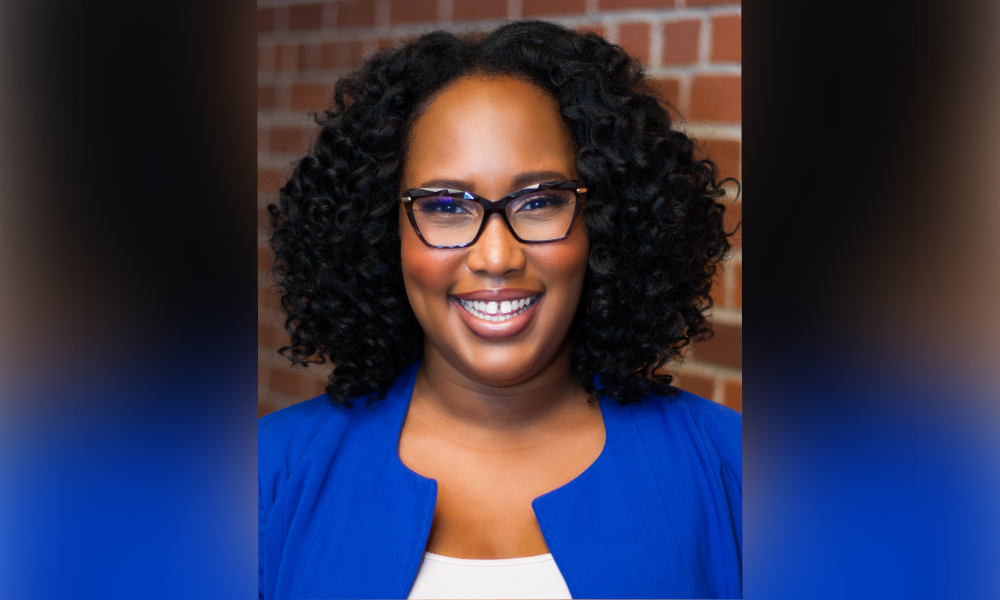Calgary family law lawyer was ‘immediately drawn to the role’ of tackling complex issue of diversity

Family law lawyer and mediator Susannah Alleyne saw a posting that the Law Society of Alberta was looking for someone to fill a newly created role of Equity, Diversity & Inclusion counsel and take over the already-existing position of Equity Ombudsperson. She knew then it was precisely the type of challenge she was seeking.
“I was immediately drawn to that role,” says Alleyne, who recently left her position at Matkovic Allan LLP to start her new role. “When I saw the description, I thought this is a really unique opportunity to be able to impact the profession.”
Alleyne wants to clarify at the outset that the views she is expressing are her own, not those held or endorsed by the LSA. Still, she feels that creating the new role is “one of those tangible measures” that shows a commitment to tackling the complex and important issues surrounding diversity and inclusion.
After graduating with an Honours Degree with Distinction from the University of Toronto, Alleyne completed a certificate in Legal Administration from Humber College, then attended Osgoode Hall Law School. While at law school, she served as the Academic Advisor for Osgoode Hall’s Black Law Students Association for two years and volunteered with Student Legal Assistance in the Greater Toronto area.
Alleyne was called to the bar in 2014, first in Ontario, later in Alberta. She has practised family law ever since and received her qualifications as a mediator two years ago. Originally from Trinidad and Tobago, Alleyne celebrates her heritage by volunteering with various Calgary Caribbean Associations and participating in Caribbean carnivals worldwide.
Law societies, like many other organizations in Canada, have for the last while been looking more closely at promoting inclusion and diversity within the profession. The past year or two has seen an increased focus on how to accomplish that goal of dealing with systemic discrimination based on race, religion, colour, disability or sexual orientation. Part of that is creating positions such as the one Alleyne has stepped into at the LSA.
“There are definitely winds of change blowing,” she says. “I think individuals, and we as a society, are having to confront the fact there are inequities . . . and we must not just relegate these truths to a corner because we don’t want to hear about it.”
She also notes that the population of Alberta is becoming more diverse, even outside of urban settings. “Things are changing in a way that we haven’t seen before,” she says, so roles such as the one at the LSA are a response to building “capacity to contribute to a more equitable, diverse profession.”
She adds that the new position “is going to assist us in being more inclusive and helping us serve a more diverse community.” And hopefully, it will be reassuring to those who thought not enough was being done — “that it’s not just all talk.”
Among the challenges of the new role is how to measure the impact of any policies that are enacted.
“What evidence do we have that the work we’re doing is making things better? And what is the evidence? These are complex questions to answer.”
However, Alleyne says that not being “held accountable would be a disservice to everyone,” so finding a way to measure the impact will help make sure that the LSA is making progress on the goals it is hoping to meet.
Another challenge will inevitably be the need to have “difficult conversations” with all stakeholders to tackle issues related to equality, diversity, and inclusion. Change doesn’t “just happen organically,” she says. “There’s a lot of work bringing people together to work on a vision and target specific issues."
“People sometimes think those difficult conversations aren’t productive. But when you have those that add value, you are moving things along. And it’s really important to make sure we’re not backing down from saying ‘Hey, we need to talk about this.’”










